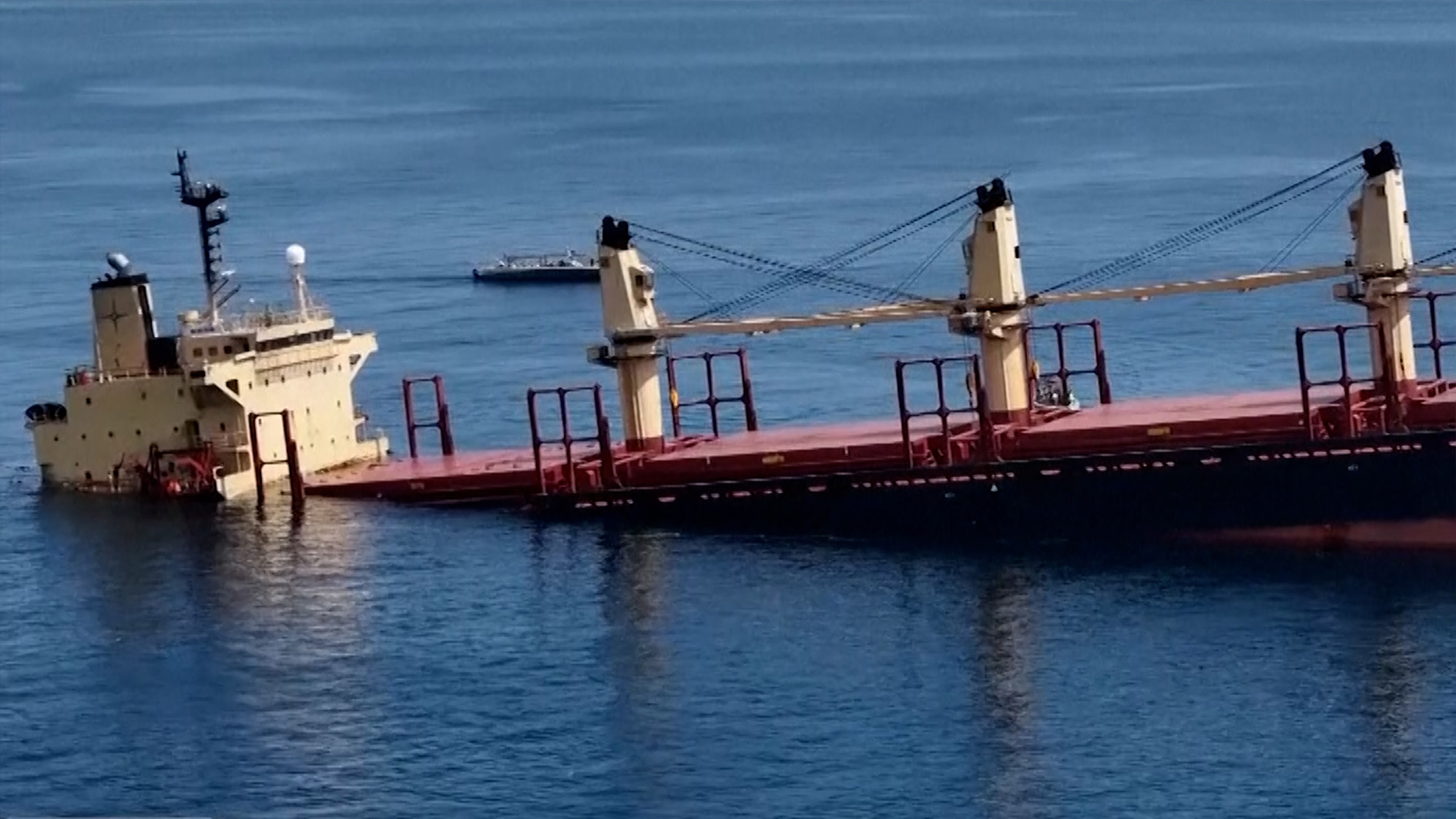
A cargo ship that was abandoned in the southern Red Sea after an attack by Yemen’s Houthi rebels has sunk after days of taking on water, according to officials.
The sinking of the Rubymar on Saturday has prompted concerns of disastrous ecological damage to the Red Sea and its coral reefs.
The Belize-flagged, United Kingdom-owned cargo ship, was carrying more than 41,000 tonnes of fertiliser and had leaked oil for several days after it came under attack.
Yemen’s internationally recognised government, in a statement on Saturday, said the ship sank “last night, coinciding with weather factors and strong winds at sea”.
The United States military’s Central Command (CENTCOM) released an image of the vessel on its side and said it went under at 2:15am local time on Saturday (23:15 GMT on Friday).
“The approximately 21,000 metric tons of ammonium phosphate sulfate fertilizer that the vessel was carrying presents an environmental risk in the Red Sea,” CENTCOM said in a statement. “As the ship sinks it also presents a subsurface impact risk to other ships transiting the busy shipping lanes of the waterway.”
The UK Maritime Trade Operations centre (UKMTO), which watches over Middle East waterways, separately also acknowledged the Rubymar’s sinking, according to The Associated Press news agency.
Rubymar’s sinking marks the first vessel lost since Yemen’s Houthis began targeting commercial shipping in November. The ship was hit by missiles on February 18 while sailing through the Bab el-Mandeb Strait. The crew then abandoned the vessel and evacuated to safety.
The Houthis – who say they have been targeting ships linked to Israel, the US and the UK in an attempt to pressure them to end Israel’s war on Gaza – claimed responsibility for the attack.
Mohammed Ali al-Houthi, the head of the Houthi supreme revolutionary committee, said that the group held UK Prime Minister Rishi Sunak and his government responsible for the vessel sinking because of their support for the “genocide” and “siege” in Gaza.
“Sunak has a chance to recover the Rubymar by allowing aid trucks into Gaza,” he added in a post on the social media platform X late on Saturday.
The Houthis have held Yemen’s capital, Sanaa, since 2014, after expelling the country’s government. The rebels have fought a Saudi-led coalition since 2015 in a stalemated war. They control much of Yemen’s north, while the country’s internationally recognised government is based in the southern port of Aden.
Ahmed Awad Bin Mubarak, the prime minister of Yemen’s internationally recognised government, called the ship’s sinking “an unprecedented environmental disaster”.
“It’s a new disaster for our country and our people,” he wrote on X. “Every day, we pay for the Houthi militia’s adventures, which were not stopped at plunging Yemen into the coup disaster and war.”
Greenpeace also raised concerns about the ship sinking.
“Without immediate action, this situation could escalate into a major environmental crisis,” said Julien Jreissati, the programme director at Greenpeace MENA.
“As well as any further leaks of fuel oil from the engines, the sinking of the vessel could further breach the hull, allowing water to contact with the thousands of tons of fertilizer, which could then be released into the Red Sea and disrupt the balance of the marine ecosystems, triggering cascading effects throughout the food web.”
The US military previously said the attack had significantly damaged the freighter and caused an 18-mile (29km) oil slick.
The Houthi attacks have disrupted international trade on the shortest shipping route between Europe and Asia.
Rerouting vessels around the Cape of Good Hope, the Cape Peninsula in South Africa, can add up to two weeks to a shipment’s journey and between 3,000 and 6,000 extra nautical miles (between 5,556 and 11,112km).
In response to the attacks on ships, the US and UK began launching strikes against targets in Yemen in January. The US also renamed the Houthis a Specially Designated Global Terrorist (SDGT) entity.
The attacks and counter-attacks have stoked fears that Israel’s war on Gaza could spread, destabilising the wider Middle East.







